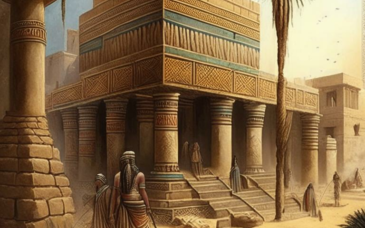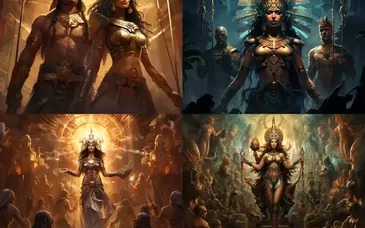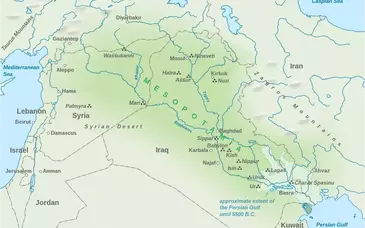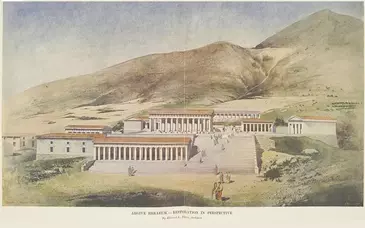Etruria was an ancient civilization that flourished in what is now central Italy between the 8th and 3rd centuries BCE. The Etruscans, as they were known, developed a highly sophisticated culture that left a lasting impact on the ancient world.
One of the most distinctive features of Etruscan culture was its art. The Etruscans were skilled metalworkers and created intricate jewelry, weapons, and other objects. They also developed a unique form of painting known as fresco, which involves painting on wet plaster. This technique allowed them to create vibrant, detailed murals that adorned the walls of their tombs and homes.
Etruscan architecture was also highly advanced, featuring impressive public buildings and private homes. They built large and complex tombs, many of which were underground and decorated with frescoes and sculptures. They also built large public structures such as temples and civic buildings.
Etruscan society was divided into city-states, each with its own ruling class of wealthy landowners and merchants. Despite this, Etruria was a highly developed society, with a complex system of laws, a professional military, and a sophisticated system of government.
Etruscan religion was polytheistic, and they believed in a pantheon of gods and goddesses. They believed in an afterlife and buried their dead in elaborate tombs filled with rich grave goods and frescoes depicting scenes from daily life.
The Etruscan civilization was also known for its contributions to the development of the Roman civilization. The Etruscans had a significant influence on Roman art, architecture, religion, and government. The Romans adopted many Etruscan customs, such as the toga, which was a garment worn by Roman men.
In conclusion, the Etruscan civilization was a highly advanced and sophisticated culture that flourished in ancient Italy. Their art, architecture, and society have left a lasting impact on the ancient world and continue to be studied today. The Etruscan culture was also a significant influence on the Roman civilization and has contributed to the shaping of the Western world.




